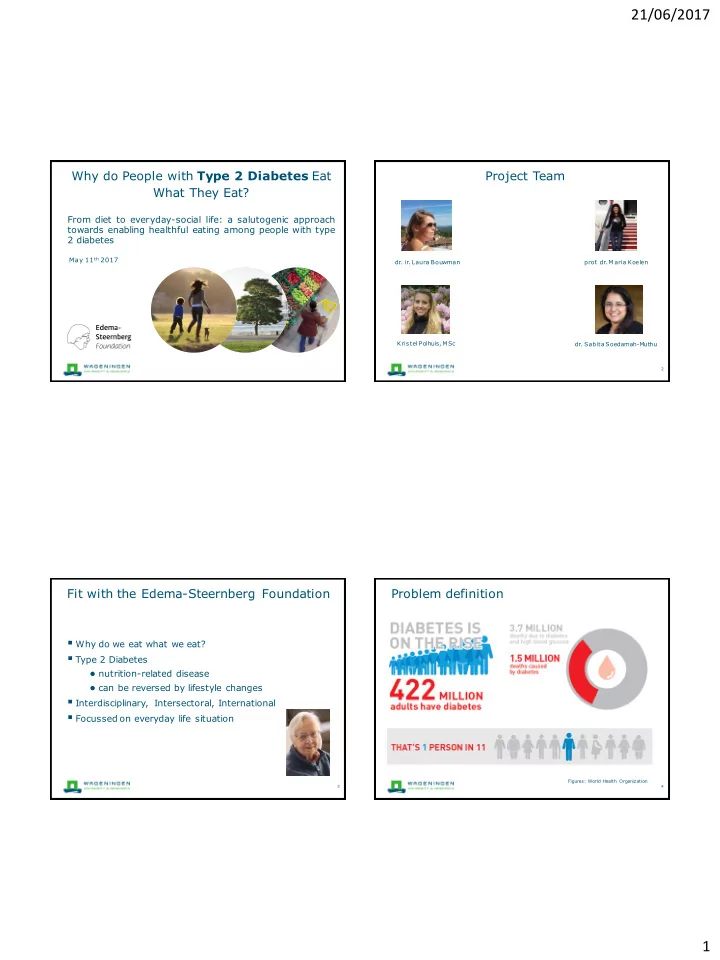

21/06/2017 Why do People with Type 2 Diabetes Eat Project Team What They Eat? From diet to everyday-social life: a salutogenic approach towards enabling healthful eating among people with type 2 diabetes May 11 th 2017 dr. ir. Laura Bouwman prof. dr. M aria Koelen Kristel Polhuis, M Sc dr. Sabita Soedamah-Muthu 2 Fit with the Edema-Steernberg Foundation Problem definition Why do we eat what we eat? Type 2 Diabetes ● nutrition-related disease ● can be reversed by lifestyle changes Interdisciplinary, Intersectoral, International Focussed on everyday life situation Figures: World Health Organization 3 4 1
21/06/2017 Problem definition Problem definition Remission of T2DM 90-95% T2DM Netherlands 2015: 1 out of 17 adults 2040: 1 out of 10 adults Lacking long- term effects Limited eye for everyday-life context in which people with T2DM have to organize dietary change 5 6 Figures: World Health Organization Problem definition Main objective A different, salutogenic perspective To develop , implement and evaluate a salutogenic intervention for people with T2DM ● Focussed on people and support them eating in line with ● Interaction between individual and environment recommendations. ● Life course perspective: past, present, future ● Ability to cope with stress ● Learning takes place in the face of life-events in which people identify and apply resources , resulting in a movement towards ease or dis-ease 7 8 2
21/06/2017 Sub-Questions Sub-Questions 1. 2. What is the effectiveness of intervention programs How do adults with T2DM perceive life-events, in adults with T2DM and what are characteristics turning points and resources within and outside of programs effectively addressing a change in themselves that contribute to eating a healthy dietary patterns? dietary pattern along their life-course? Systematic (mixed methods) review Narrative analysis and Assets mapping 9 10 Sub-Questions Sub-Questions 3. 4. How can we develop an intervention program for What is the effect of the intervention program adults with T2DM using evidence from existing on overall health and well-being, dietary interventions ( RQ1 ) and the insights derived from composition, diabetes related risk factors, diet- the study towards perceptions of adults with T2DM related behaviours and individual psycho-social ( RQ2 )? factors? Randomized controlled trial Data Integration (guided by the PRECEDE-PROCEED model) 11 12 3
21/06/2017 3. Identify administrative & financial policies Research stage 1: Systematic review needed Research stage 2: Narrative A nalysis and Assets Mapping 13 14 Questions? Thanks for your attention! 15 4
Recommend
More recommend